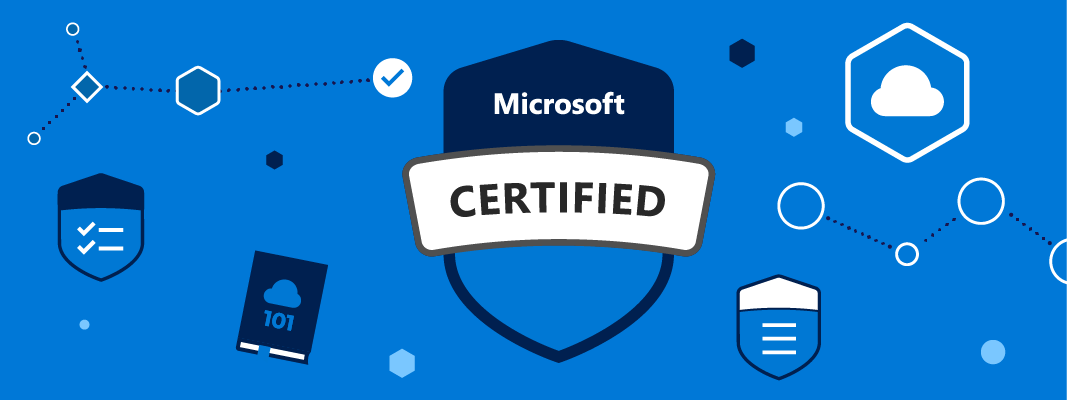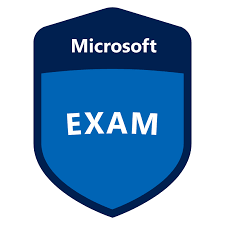Microsoft is offering FREE certification courses, providing an excellent opportunity to enhance your skills and boost your career with no fees, no subscriptions, and no registrations required – just dive into the world of learning.


FREE Microsoft Certification Courses on Azure
These courses cover a wide spectrum of Microsoft technologies, with each offering video lectures, tutorials, and easy-to-follow notes.
Let's explore some of the incredible free courses that await you:
1) Microsoft Azure Fundamentals
This course will provide foundational level knowledge on cloud concepts; core Azure services; and Azure management and governance features and tools.
2) Microsoft Azure Data Fundamentals
In this course, students will gain foundational knowledge of core data concepts and related Microsoft Azure data services. Students will learn about core data concepts such as relational, non-relational, big data, and analytics, and build their foundational knowledge of cloud data services within Microsoft Azure.
3) Microsoft Azure AI Fundamentals
This course introduces fundamental concepts related to artificial intelligence (AI), and the services in Microsoft Azure that can be used to create AI solutions. The course is not designed to teach students to become professional data scientists or software developers, but rather to build awareness of common AI workloads and the ability to identify Azure services to support them.
4) Microsoft Azure Administrator
This course teaches IT Professionals how to manage their Azure subscriptions, secure identities, administer the infrastructure, configure virtual networking, connect Azure and on-premises sites, manage network traffic, implement storage solutions, create and scale virtual machines, implement web apps and containers, back up and share data, and monitor your solution.
5) Developing Solutions for Microsoft Azure
This course teaches developers how to create end-to-end solutions in Microsoft Azure. Students will learn how to implement Azure compute solutions, create Azure Functions, implement and manage web apps, develop solutions utilizing Azure storage, implement authentication and authorization, and secure their solutions by using KeyVault and Managed Identities. Students will also learn how to connect to and consume Azure services and third-party services and include event- and message-based models in their solutions. The course also covers monitoring, troubleshooting, and optimizing Azure solutions.
6) Configuring and Operating Microsoft Azure Virtual Desktop
This course teaches Azure administrators how to plan, deliver, and manage virtual desktop experiences and remote apps, for any device, on Azure. Lessons include implementing and managing networking for Azure Virtual Desktop, configuring host pools and session hosts, creating session host images, implementing, and managing FSLogix, monitoring Azure Virtual Desktop performance and health, and automating Azure Virtual Desktop management tasks.
7) Designing Microsoft Azure Infrastructure Solutions
This course teaches Azure Solution Architects how to design infrastructure solutions. Course topics cover governance, compute, application architecture, storage, data integration, authentication, networks, business continuity, and migrations. The course combines lecture with case studies to demonstrate basic architect design principles.
8) Designing and Implementing Microsoft Azure Networking Solutions
Learn how to design and implement a secure, reliable, network infrastructure in Azure and how to establish hybrid connectivity, routing, private access to Azure services, and monitoring in Azure.
9) Designing and Implementing a Microsoft Azure AI Solution
This course is intended for software developers wanting to build AI-infused applications that leverage Azure AI Services, Azure AI Search, and Azure OpenAI.
10) Develop Generative AI Solutions with Azure OpenAI Service
In this course, you'll learn how to provision Azure OpenAI service, deploy models, and use them in generative AI applications.
11) Data Engineering on Microsoft Azure
In this course, the student will learn how to implement and manage data engineering workloads on Microsoft Azure, using Azure services such as Azure Synapse Analytics, Azure Data Lake Storage Gen2, Azure Stream Analytics, Azure Databricks, and others. The course focuses on common data engineering tasks such as orchestrating data transfer and transformation pipelines, working with data files in a data lake, creating and loading relational data warehouses, capturing and aggregating streams of real-time data, and tracking data assets and lineage.
12) Designing and implementing a data science solution on Azure
Learn how to operate machine learning solutions at cloud scale using Azure Machine Learning. This course teaches you to leverage your existing knowledge of Python and machine learning to manage data ingestion and preparation, model training and deployment, and machine learning solution monitoring with Azure Machine Learning and MLflow.
Conclusion
Obtaining Microsoft certifications adds significant value to one's professional journey.
These certifications serve as a testament to your expertise and proficiency in Microsoft technologies, providing a recognized validation of your skills in the ever-evolving tech landscape. As industries increasingly prioritize individuals with validated competencies, being Microsoft certified not only enhances your credibility but also opens doors to a myriad of opportunities.
Moreover, being Microsoft certified is a continuous investment in your career growth. It showcases your commitment to staying abreast of the latest advancements in technology, positioning you as a valuable asset in the competitive job market.